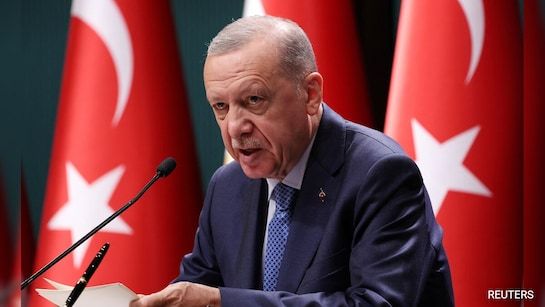Istanbul: Turkish President Recep Tayyip Erdogan is poised to wield unprecedented international influence as he prepares to host the first direct Russia-Ukraine peace negotiations in over three years on Thursday.
This milestone follows the dissolution of the Kurdistan Workers’ Party (PKK), a long-standing militant group in Turkey. Erdogan’s growing stature as a global diplomat, fostering stability in Eastern Europe and the Middle East, has earned praise from U.S. President Donald Trump, amplifying Turkey’s regional clout.
However, at home, economic woes and protests threaten to overshadow his foreign policy triumphs, highlighting the stark contrast between his global and domestic personas.
Turkey commands NATO’s second-largest military and produces armed drones critical to Ukraine’s defense against Russia. Yet, Ankara has maintained a delicate balance, refusing to join Western sanctions against Moscow to preserve trust with both sides.
“Even if the Istanbul talks falter, Erdogan will still gain prestige. He relishes having his legacy tied to peace agreements,” said Onur Isci, an associate professor of international relations at Kadir Has University.
On Wednesday, Ukrainian President Volodymyr Zelenskyy will arrive in Ankara to meet Erdogan, challenging Russian President Vladimir Putin to join them in Istanbul the following day to negotiate a ceasefire. Putin, however, has not confirmed his attendance, leaving the talks’ outcome uncertain.Erdogan’s diplomatic efforts extend beyond Eastern Europe.
He has mediated in Somalia and pushed for a Gaza ceasefire, while strengthening Turkey’s role in Syria after the fall of Bashar al-Assad’s regime. “Erdogan has positioned Turkey as a pivotal player in global conflicts, leveraging its strategic location and military might,” said Asli Aydintasbas, a visiting fellow at the Brookings Institution.Yet, these international successes contrast sharply with domestic challenges.
Turkey’s economy is reeling, with inflation exceeding 50% annually, prompting widespread protests, including violent clashes in Istanbul over a new law expanding police powers to detain suspects without charges.
Critics argue this legislation, coupled with a recent ban on stray dogs, reflects Erdogan’s authoritarian tendencies. “When domestic issues mount, Erdogan shifts attention to foreign policy to distract from internal unrest,” Aydintasbas noted.The timing of the PKK’s dissolution, after four decades of conflict costing over 40,000 lives, has bolstered Erdogan’s domestic image.
Announced last week, the move has been celebrated as a victory, though analysts warn that splinter groups may persist. “Erdogan will frame this as a personal triumph, but the real test is whether peace endures,” said Soner Cagaptay, director of the Turkish Research Program at the Washington Institute.Erdogan’s ability to navigate these “parallel universes” stems from his 22-year tenure leading Turkey, where he has mastered redirecting public focus abroad during domestic crises.
His balancing act—condemning Russia’s invasion while maintaining ties with Moscow—has drawn criticism from Western allies but kept Turkey relevant in global diplomacy. “Erdogan thrives in this duality, using foreign policy to offset domestic discontent,” Cagaptay added.As the world watches the Istanbul talks, their success could solidify Erdogan’s legacy as a peacemaker.
Failure, however, may still enhance his reputation as a bold mediator. At home, economic struggles and protests will test his ability to maintain control, with elections looming in 2028. For now, Erdogan remains a polarizing figure—a global statesman abroad, yet a divisive leader facing unrest at home.



